CHILDREN OF MEN Explained: There Is Still Hope
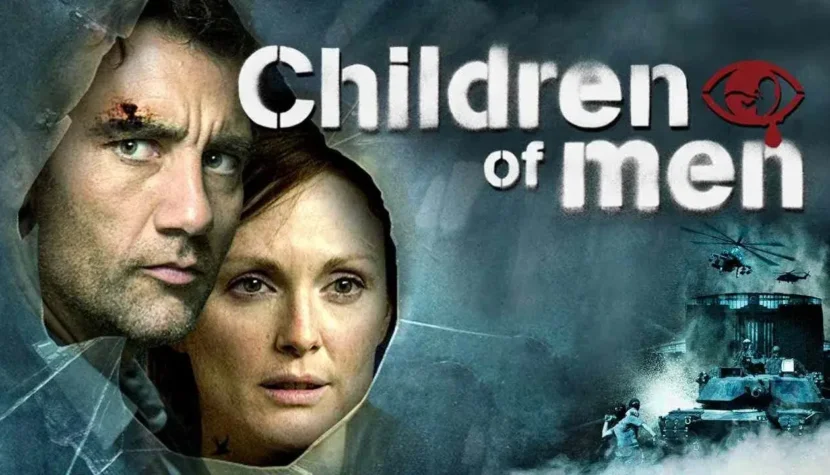
Then God blessed them, saying to them: Be fruitful and multiply, so that you fill the earth and subdue it; so that you rule over the fish of the sea, the birds of the air, and all the creatures that crawl on the ground.
(…)
And it was so.
And God saw that everything he had made was very good.
(Genesis 1:28, 30-31)
Year Omega
…but man succumbed to the schemes of the Serpent and reached out with an impulsive hand for the forbidden fruit, disregarding His trust and love. Forgetting the biblical flood, he began to break the Lord’s commandments, bend them to his will, run away from them, and in his pride even ignore the fundamental “thou shalt not kill” – not to mention love for one’s neighbor. And so God took away from humanity the greatest gift it had ever received from Him. Children of Men
In 2008, Diego Ricardo was born, the last child on Earth.
Over eighteen years later, a boat will again become humanity’s chance. But this time, not a mighty ark, but a little boat bobbing in the fog in a dirty canal.
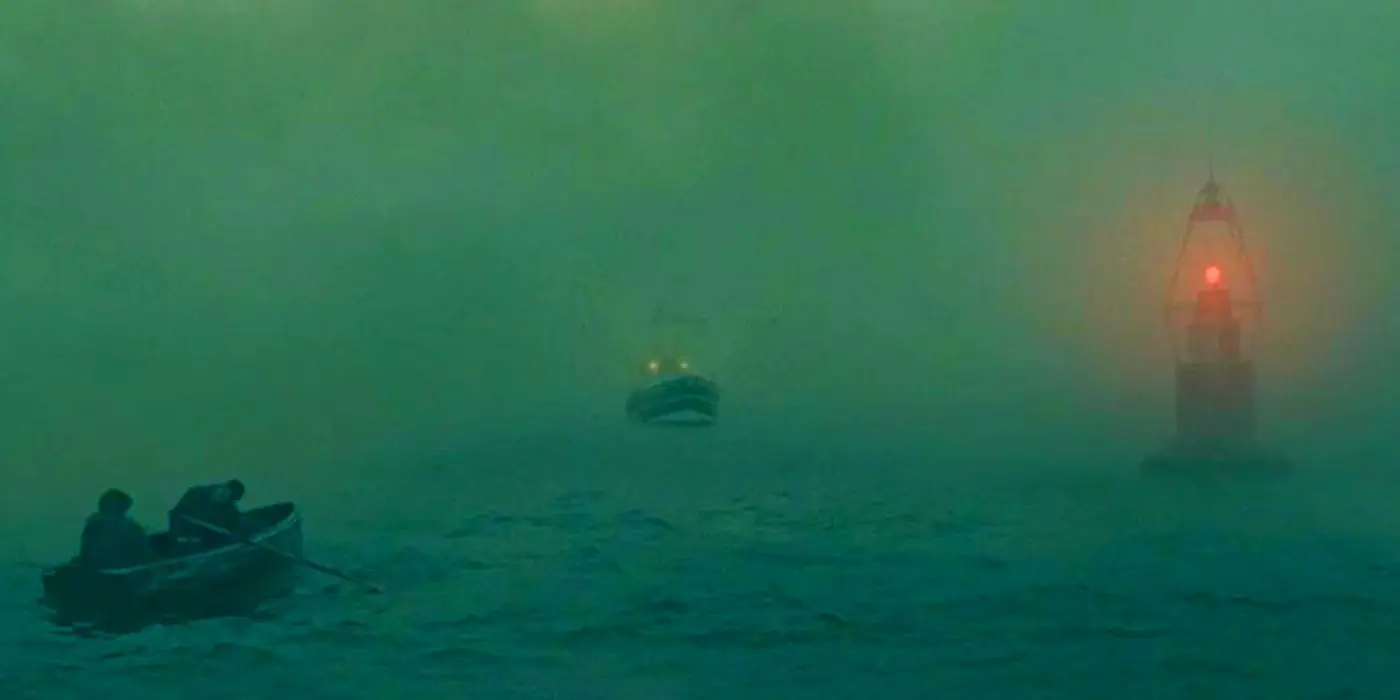
And thus…
…Alfonso Cuarón made an excellent film. Yes, the adaptation of a novel by P. D. James, which I am not closely familiar with, is a remarkable picture, and I would even venture to say it is one of the best.
The story is not particularly original, although calling it that would be extremely unfair to Children of Men. Unfair and even misleading – because can one speak of a lack of innovation when art reaches deeply embedded archetypes in human consciousness, retelling the immortal, universal story of redemption and hope?
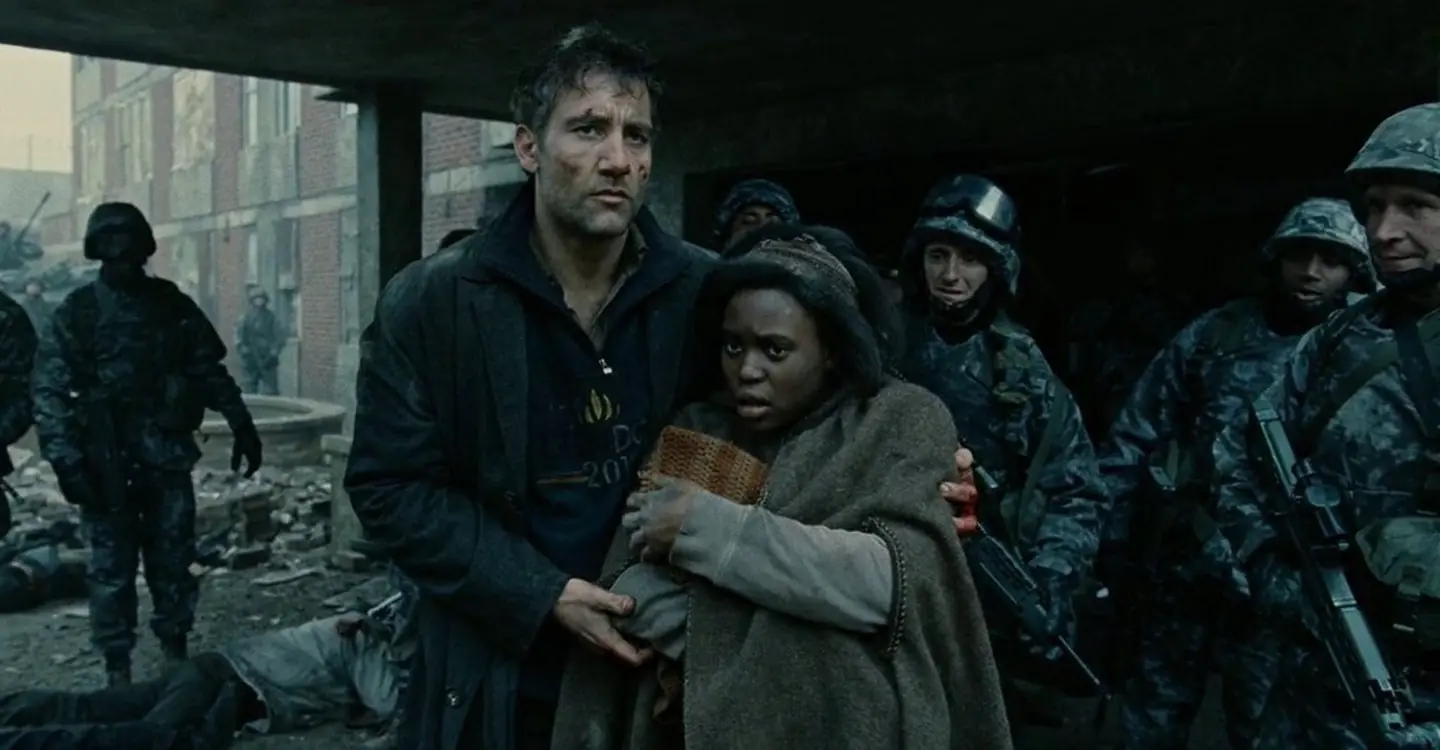
Humanity has reached the brink of extinction; since 2008, not a single child has been born on our planet. What is the reason for this? Air pollution? Genetic experiments? Or maybe it’s a punishment inflicted by God himself, who once struck the child that Uriah’s wife had borne to [King] David, so that he became ill. David pleaded with God for the child and fasted severely. (…) On the seventh day, the child died (2 Samuel 12:15-16, 18)?
Either way, human pride is to blame. Pride – that’s my favorite sin, says Satan himself, John Milton, in The Devil’s Advocate. We have prepared such a fate for ourselves.
No elves in red hats did this for us. We decided that we would pretend to be wiser than we are.
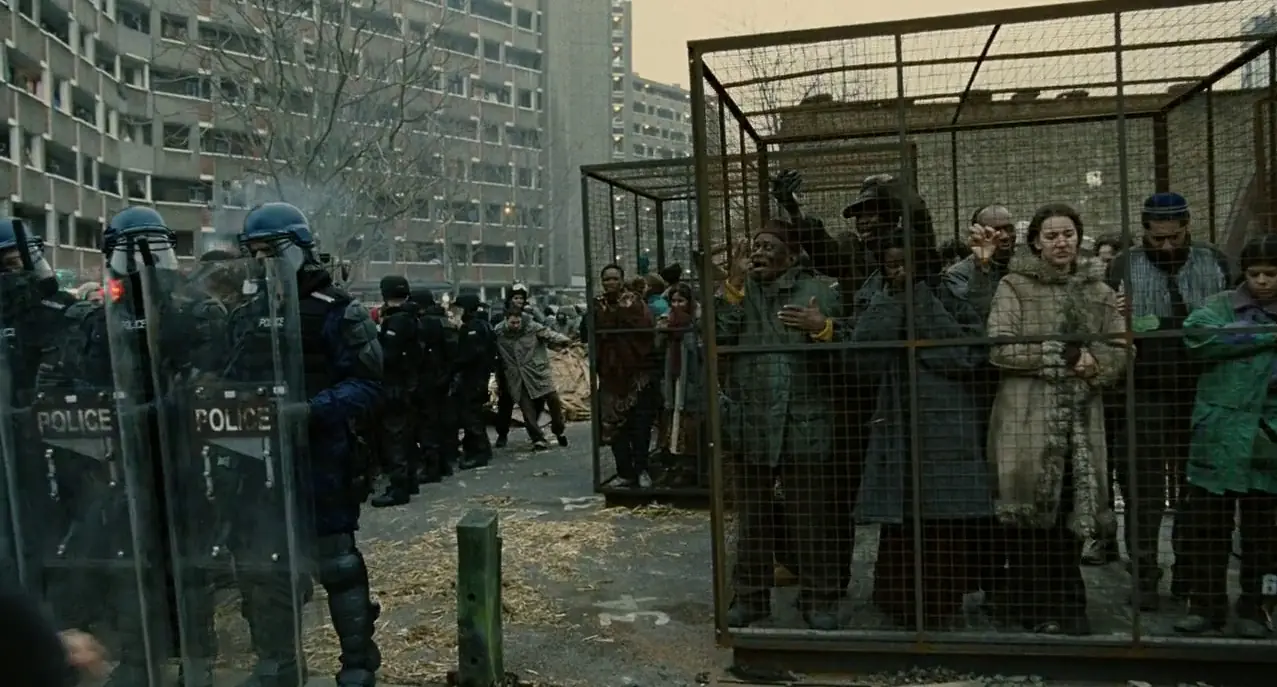
The World of 2027
…Cuarón presents without intrusive commentary; he seems not to ponder what led humanity to infertility. Because the question of this fundamental matter has vanished from human memory. There is no answer; we will probably never know it. Theo, the main character, lives day by day, not deluding himself, only in the presence of his friend, hippie Jasper, does he manage to smile a little. London, where he lives, also cannot wake up from its lethargy.
Cuarón portrays this lethargy with painfully clear strokes. What we see does not differ much from the flickering images on TV.
The world of Children of Men is normal, devoid of pathos, Hollywood swagger, and extraordinariness. As if one could reach out and touch it on the other side of the screen.
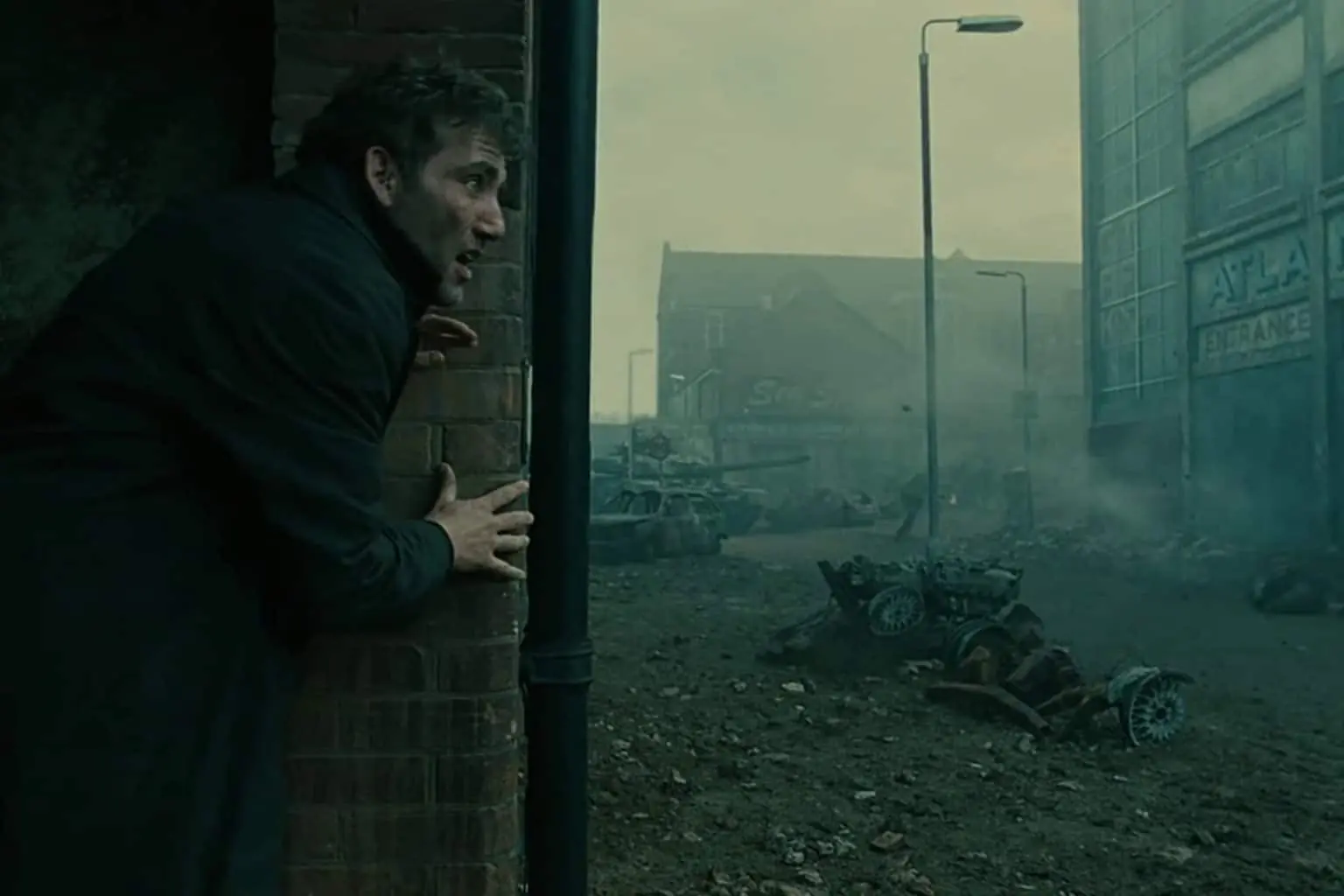
This is how great films about the future are made, ladies and gentlemen, and it is all the more lamentable that since Terry Gilliam’s 12 Monkeys (1995), no Hollywood film has shown an equally dirty, repulsive vision of what might befall us in a few decades. Fed with works like Minority Report or I, Robot, as well as deliberately “smoothed” future cities in Equilibrium, we have forgotten that in a hundred years, dumpsters will smell just as bad as they do today, maybe even worse, sloppy graffiti won’t disappear from walls, and coffee from a vending machine will still lack flavor. The Dream Factory has forgotten even Ridley Scott’s great work, Blade Runner, where beauty and ugliness gave, despite brushing lightly against surrealism, a dirty, realistic vision of A.D. 2019…
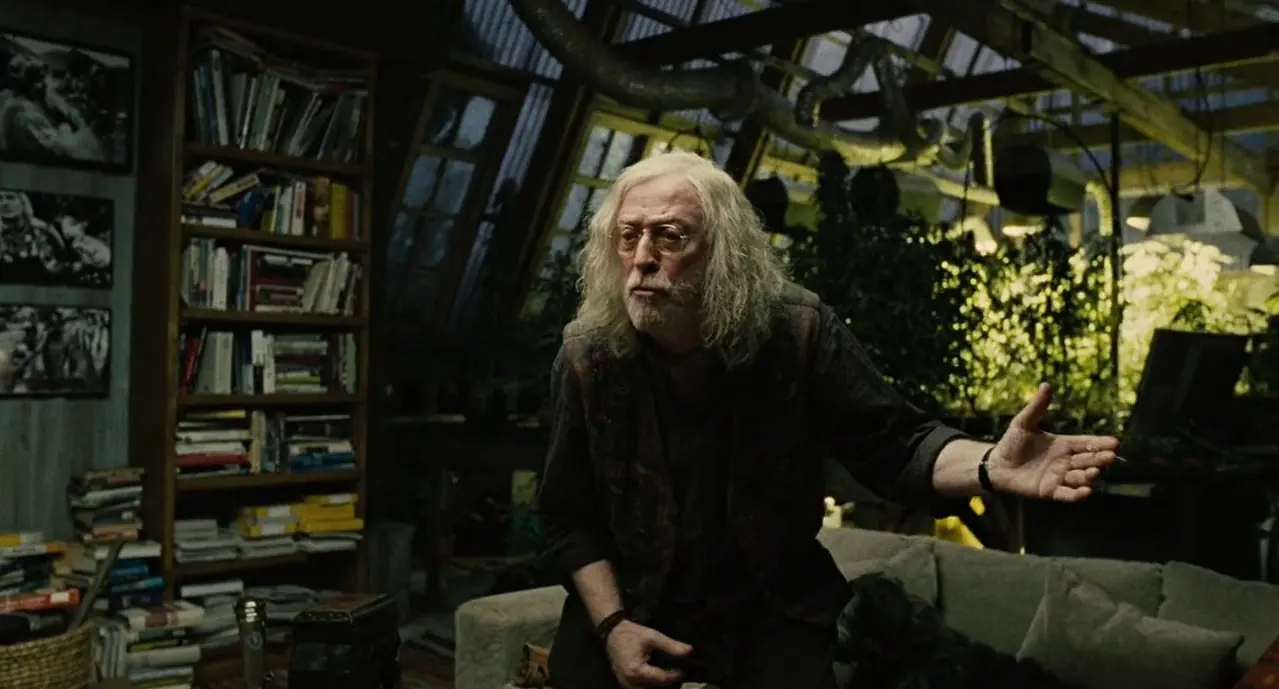
Theo
– is indeed an excellently constructed character. Standing BETWEEN – initially indifferent, avoiding the gaze of others, pretending not to care about the world’s death, slowly returning to thoughts of his past.
It often happens that the main character is merely a pretext to show certain events, an uninteresting pebble causing an avalanche. Theo (though endowed with the everyman face of Clive Owen!) is not such. Seemingly indifferent, gray, hiding emotions, the path he takes shows that this man is NOT a pawn. He might wish to be, but he is not (usually, it’s the opposite – the main character pretends to have some struggles and a Very Important Mission Whose Purpose Must Be Written With Capital Letters, but no one really cares about his fate!).
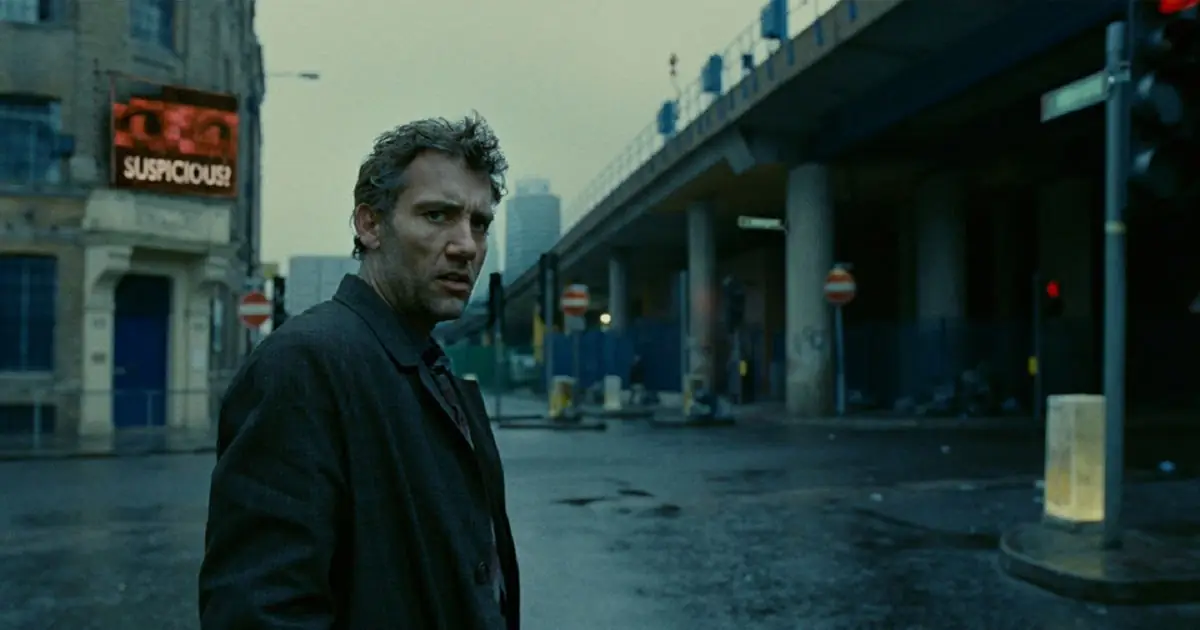
Theo has come full circle. He once fought for something. In the distant past. HE BELIEVED. Then doubt came. He lost hope. His life fell apart like a house of cards. Now, after years of loneliness, he meets Julian. Time seems to go backward, and Theo dies on the boat, hoping he saved Dylan – and thus the name of Kee’s daughter becomes symbolic.
Theo could have died where the film’s action begins – in a bar. By chance, the hero left the cafe and survived. But perhaps it wasn’t a coincidence? Perhaps it was his indifference, the same one he would soon have to abandon when thrown into the whirlwind of events…?
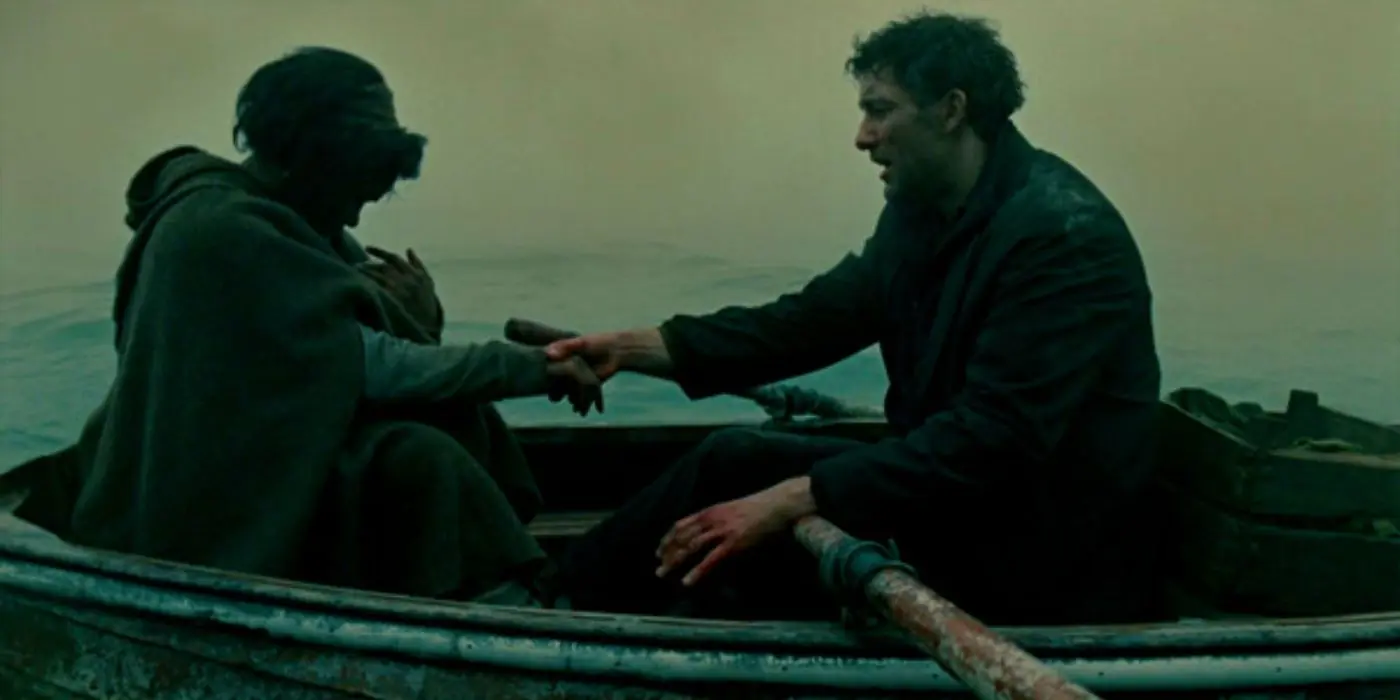
The Death of Julian
…is one of those rare moments in cinema when we grip the armrest and curse silently, wanting to reverse the events happening on the screen.
Quoting my mate Karol – “this move is genius.” Even aside from the fact that many viewers associated the premiere of Cuarón’s new film with Julianne Moore, one must admit that it is the first (though not the last, of course) scene that can be called a proverbial “kick.”
The thought: “she’ll get out of it.” And then: “but all the scenes with her that were in the trailers have already happened.”
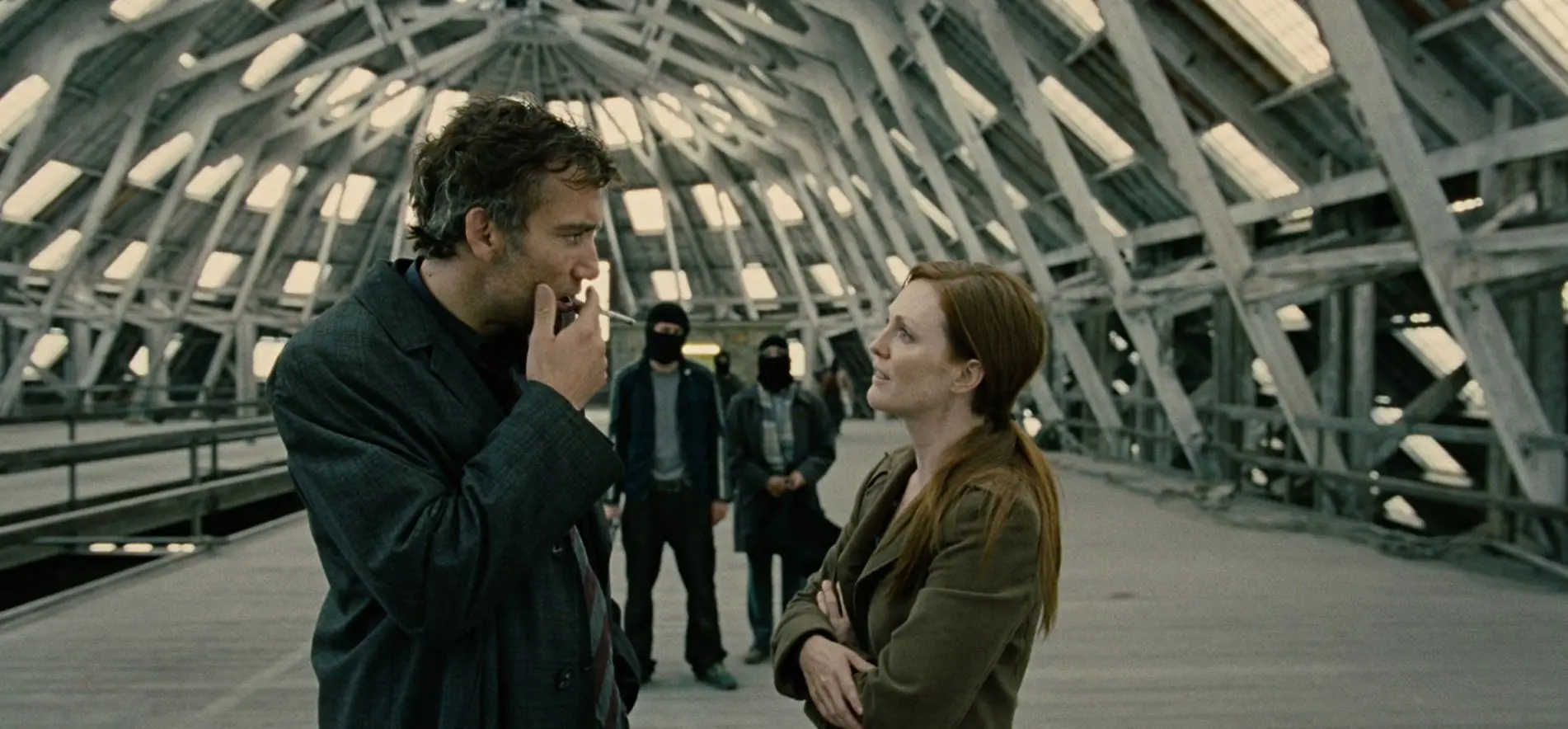
She is a character who really appears for 10 minutes but immediately intrigues the viewer… or at least she intrigued me. With wisdom, charisma, and gravity. Somehow Julian becomes the personification of rebellion against the disease devouring the world (although the dark sides of the rebellion will be known shortly…). Julian is the first to tell us about “a certain girl.” This is emphasized more painfully and briefly by a scene at Tomasz’s farm (by the way, it’s nice to see our Argentinean Jacek Koman again…) where Fishes watch BBC news reporting the death of a “terrorist leader.” The excellent shot comes to mind when, even after the heroine’s death, still in the car, Julian’s face fills half the frame, and there is almost no blood visible as if the woman is still alive. Illusions – a painful thing.
But this is what Children of Men is about – about people who lost faith in a better tomorrow but then allowed themselves to fight for it, even though everything indicated that hope had already disappeared like a stone in water.
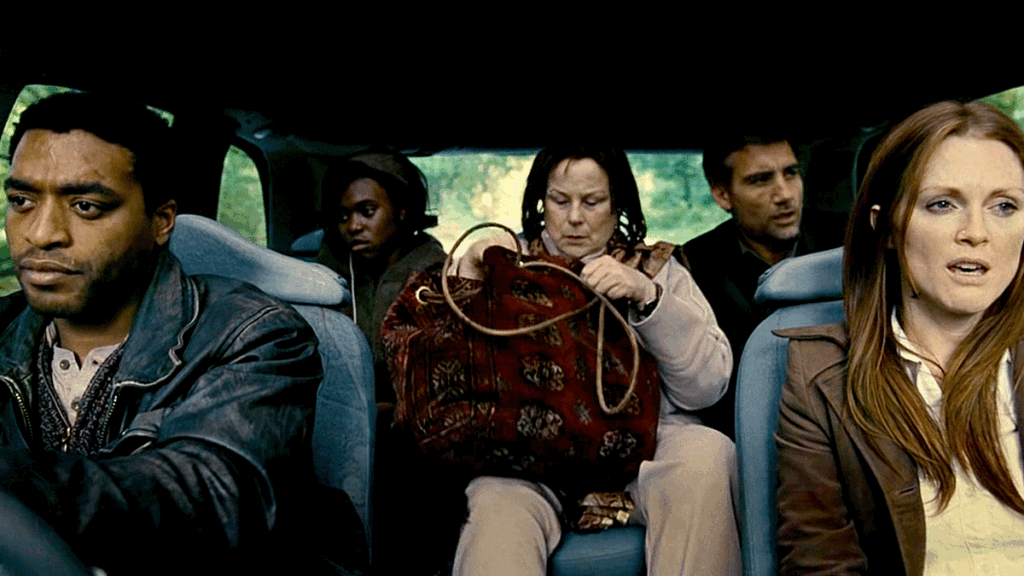
Jasper
…is the only one with distance from the world, which does not mean indifference.
Here he is: an individuality in a gray world of police and immigrants. He is the only one who smiles, does not succumb to suffering (see: Janice), comments on events around, but still finds something worth living for. He is a character that brings a little fresh air, a pinch of lightness, humor to the story. In a dying world, there is still room for a stork joke. People have come to terms with infertility, but Jasper is not one of those who, after seeing the first child in 18 years, would be capable of shooting (see: finale before the shelled building, the crying child among soldiers).
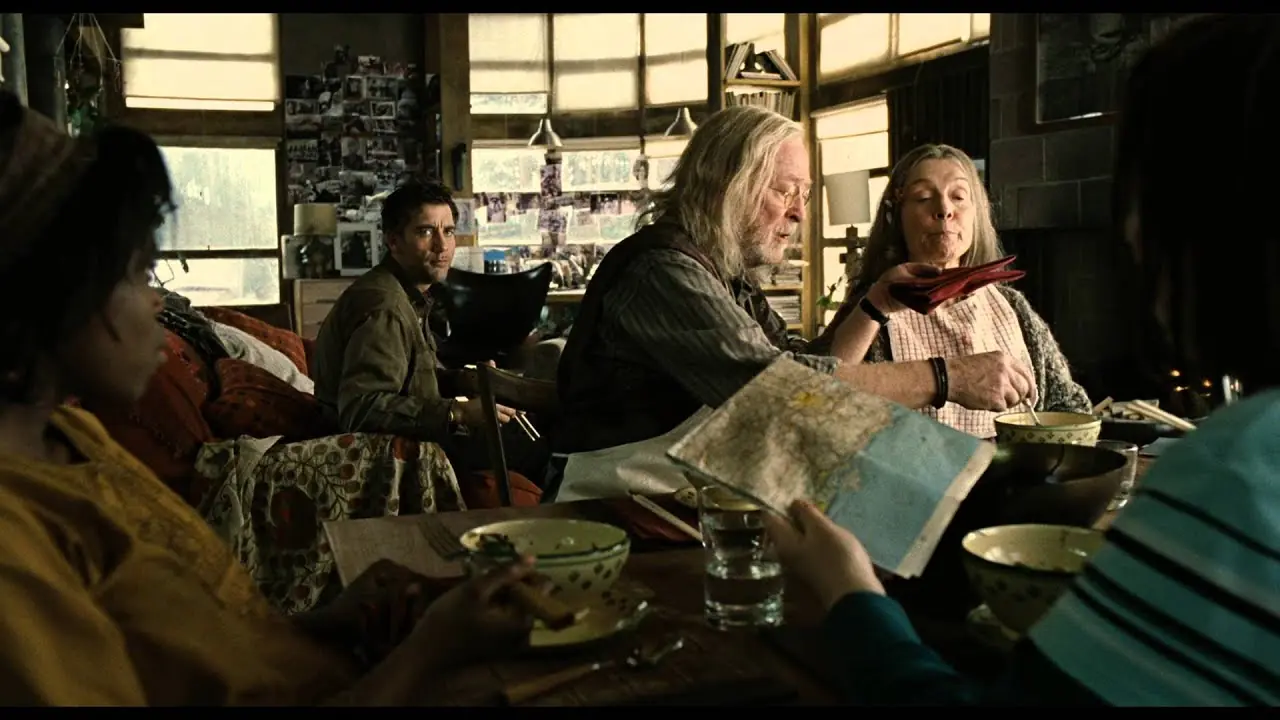
Jasper dies with dignity, but not for the sake of death itself. He makes a sacrifice, but it is not for the sacrifice’s sake but for a friend. In times when it is fashionable to throw words to the wind and make oneself a martyr, Cuarón shows what a true sacrifice is. And Jasper dies with a smile on his face. He dies, but happy because he lived life to the fullest because he does not die in vain, he dies believing there is still a CHANCE for humanity.
Birth
…as a sequence that could have been packed with Great Words.
It turns out to be quite ordinary. Ordinary and extraordinary at the same time. Full of emotions, although… it’s “just” a birth. It should be something completely natural, beautiful, but natural, and yet it is – a phenomenon. What kind of world is it when what is natural becomes a worldwide event? When shaking hands with another person will give people chills? Maybe it already does?
Kee gives birth on a dirty mattress in a crumbling house. There is no one there but her and Theo; somewhere beyond this little room where the miracle occurs, a war is ongoing.
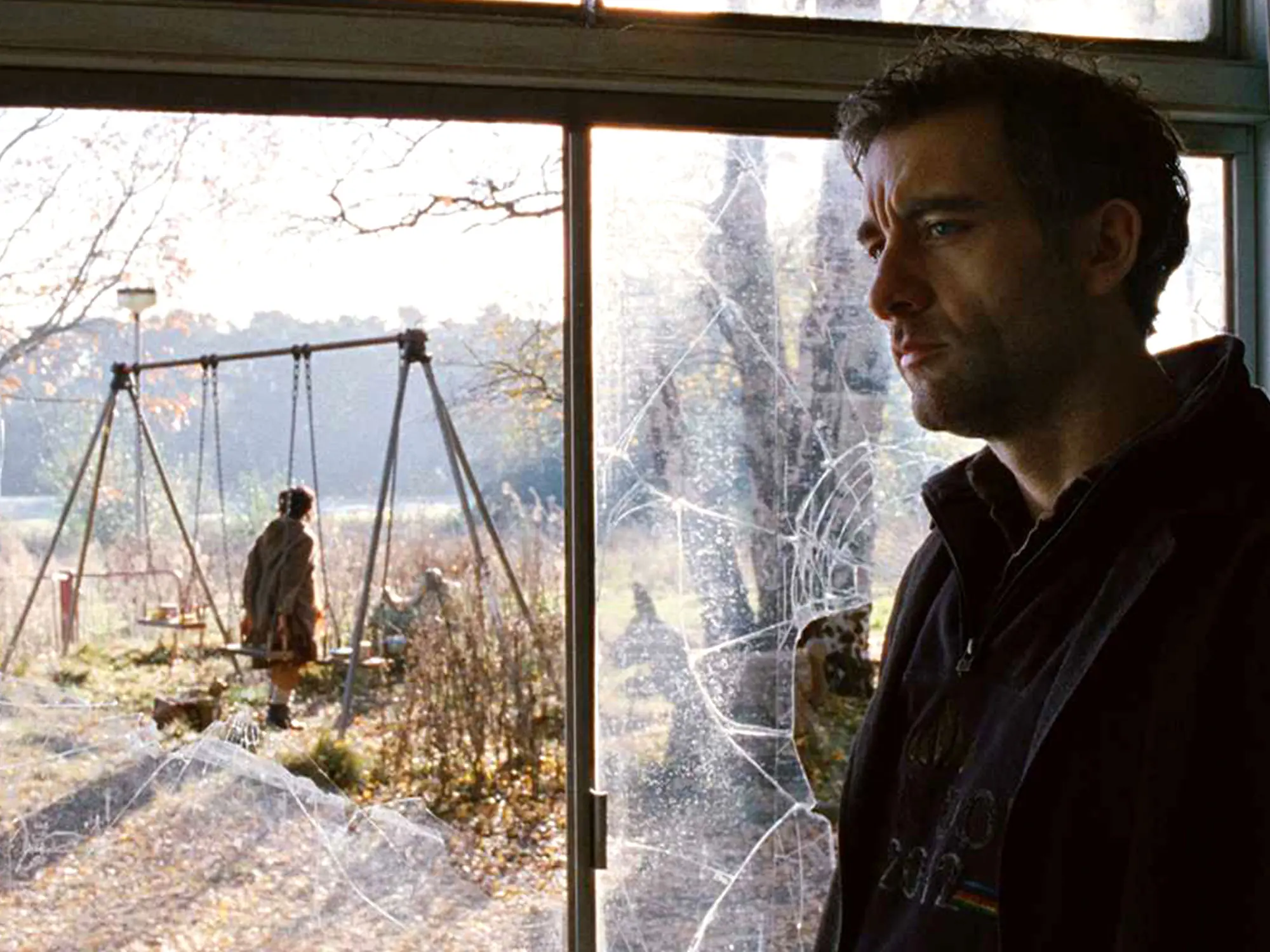
Kee
…No one—neither in reviews nor in discussions—somehow paid attention to how many stereotypes and preconceived notions that might have formed around this girl after watching the trailer, this character breaks. In the trailer, she doesn’t utter a single word. What might one think? She won’t say anything, just a clueless little dove, moreover black, so the anti-racist organizations won’t object. And then what? Surprise. Already in one of Kee’s first lines, the word “FUCK” appears. Yes, the first mother in 18 years curses, laughs, is sometimes loving, but also rebellious. She is just an ordinary, simple girl, but at the same time natural and endowed with a sense of humor; there is a scene where, in Jasper’s house, Theo asks her who the father of the child is. What are you saying, of course, I’m a virgin, Kee says—and then bursts out laughing. However, for a very brief moment, Theo has a somewhat “blurred” expression. Could it be that the sight of a woman in advanced pregnancy awakened his belief in miracles?
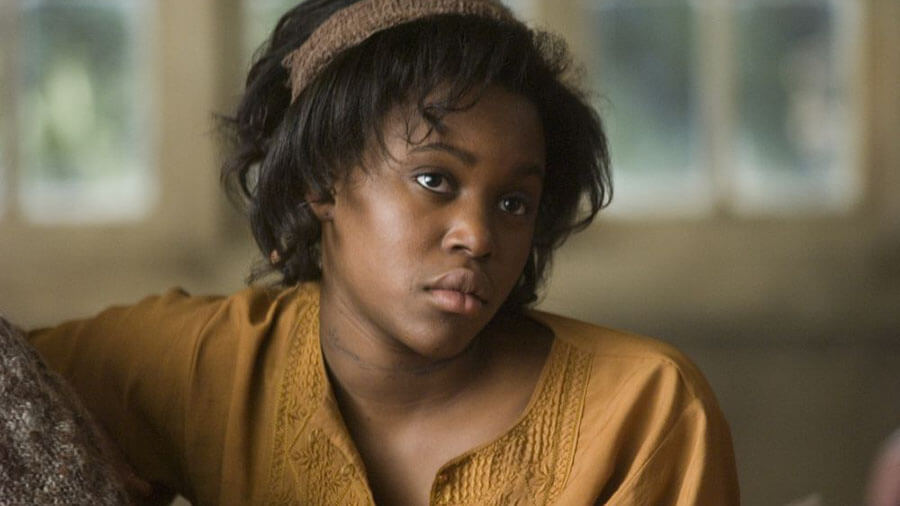
The Fight
…in a world without values. A world of cruelty and paradoxes (the government sends out aids for suicide but forbids smoking weed, notes Jasper).
But let’s not be deceived by appearances. The “opposition” in Cuarón’s film is not a group of martyrs. Luke and the Fishes hesitate. They pursue their goals ruthlessly—even though the driving idea behind them has been lost somewhere, it has turned into a terrifying spiral of violence. And they… haven’t even noticed it. They think about TOMORROW, not the DAY AFTER TOMORROW. They would like to present Kee’s child as a symbol, not a human being with feelings. To put it on “display” like little Simba in The Lion King. To use the innocent child to achieve something that has been nullified by their own actions—not least of which is the betrayal of Julian. To use a MIRACLE to achieve… well, what exactly? Aren’t they a mirror image of those they kill? One might feel sorry for them.
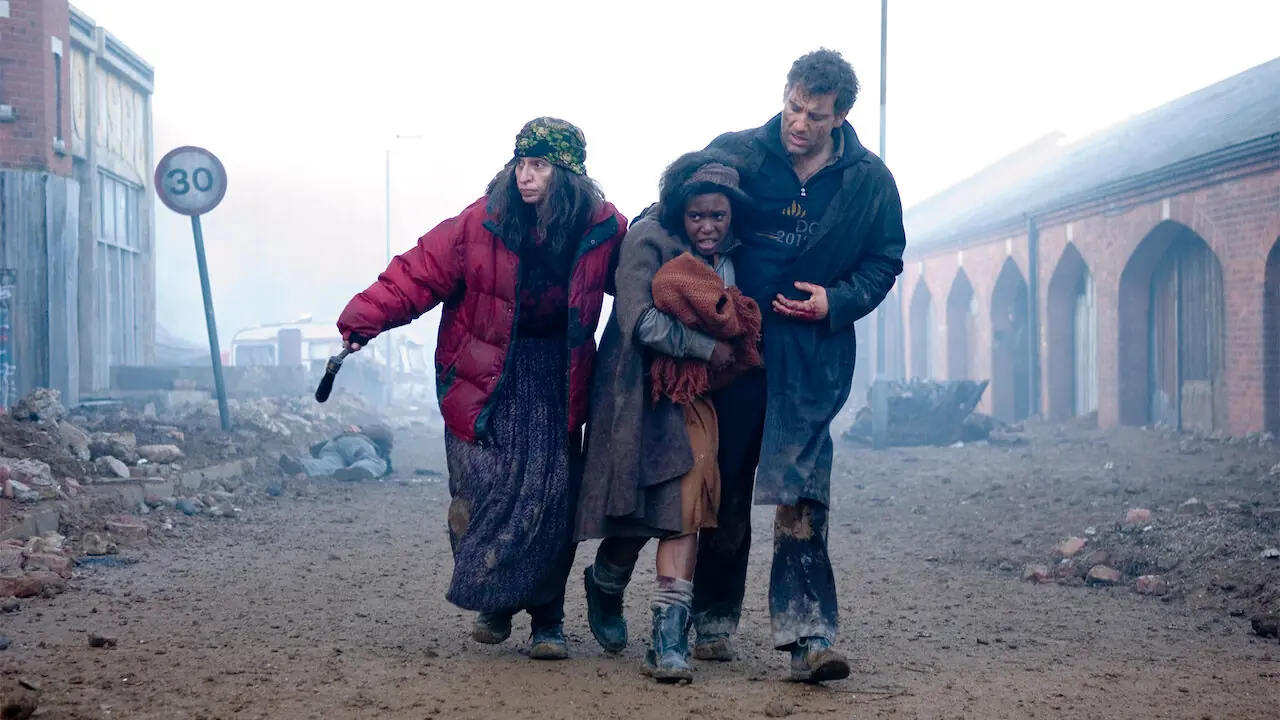
Quoting Jasper—Theo and Julian met because they believed in SOMETHING. And Luke and his companions have forgotten what that SOMETHING was about.
Contrasts
…this is another detail: Cuarón very strongly juxtaposes scenes of happiness and tragedy several times. Moments before her death, Julian sits facing Theo, there’s a sequence with a ball passed from mouth to mouth, a brief moment of an almost-kiss. And then—a blow.
The second situation occurs just before the final battle, when Kee lies on the bed with the baby, and the women (including Marichka) are playing with “not-yet-Dylan.” Kee says then: “They love my little daughter.” And a moment later, there’s a crash, explosions, escape, more screams, and corpses.
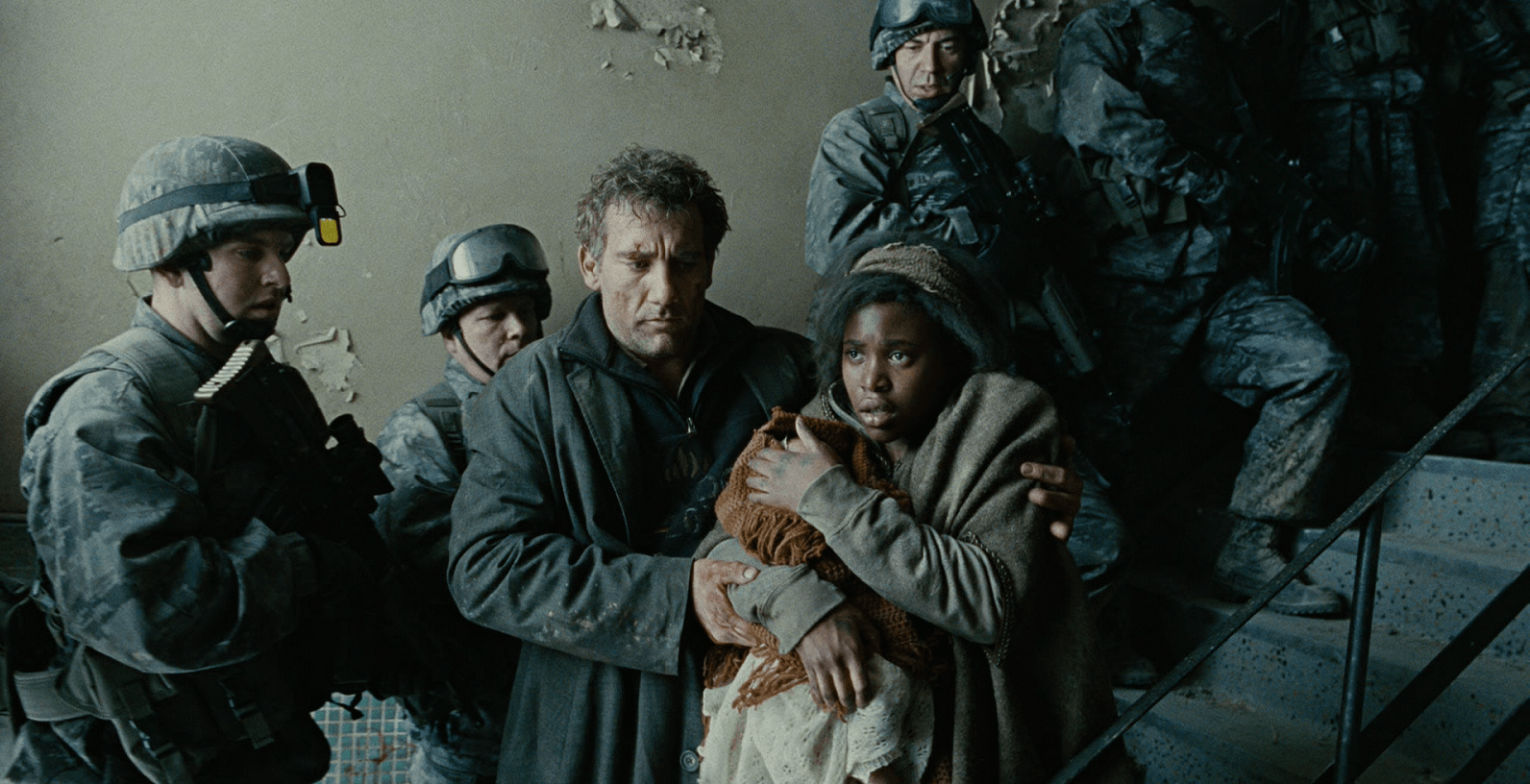
Isn’t this Cuarón’s counter to the trash flooding cinema? It may be a detail—but, like the infamous “marketing gimmick,” it WORKS. Because I keep thinking about Julian leaning over the seat. And about Kee’s smile.
Finale
…it’s a perfectly fitting piece that summarizes the whole, giving the story an almost biblical character.
The logic of events rules out a happy ending from the start, but since when does common sense pose a barrier for Hollywood? If Cuarón wanted, Theo could sail off on the “Tomorrow,” forget his wounds, cry, start thanking all the saints that Humanity has been reborn. However, to satisfy the appetites of bloodthirsty fans of Darkness and Grayness, Alfonso would have to kill the heroes in the final scene in the manner of Bonnie and Clyde.
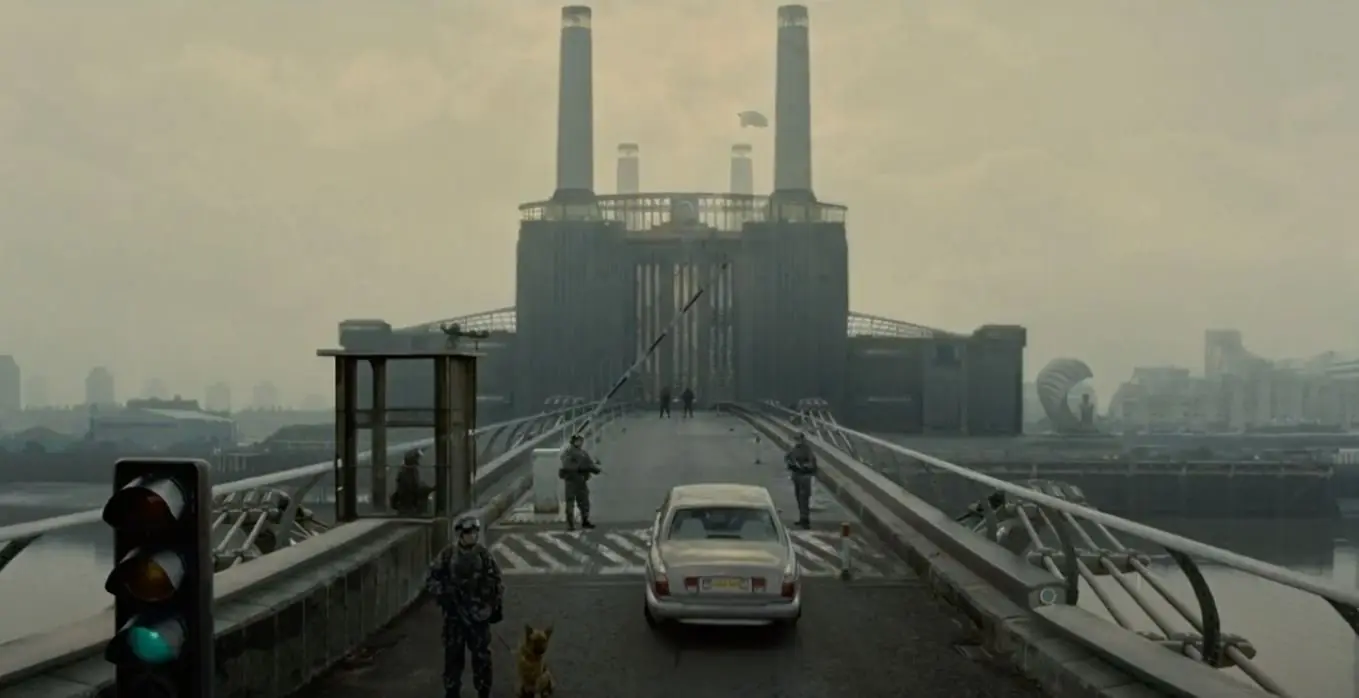
All of this would have been possible if it weren’t for one issue—both proposals were doomed to fail from the start. The film wouldn’t withstand the confrontation of sweetness—or, conversely, hopelessness—with the tone of the rest of the story. Simply put, one of them would be plain stupid, and the other—cheap and flashy.
Cuarón presents the best kind of ending—an open ending. Theo has fulfilled his mission, reached the finish line. He did what was required of him. And despite the pain—he was happy on the boat, even though he would gladly accompany Kee further, to protect her and support her.
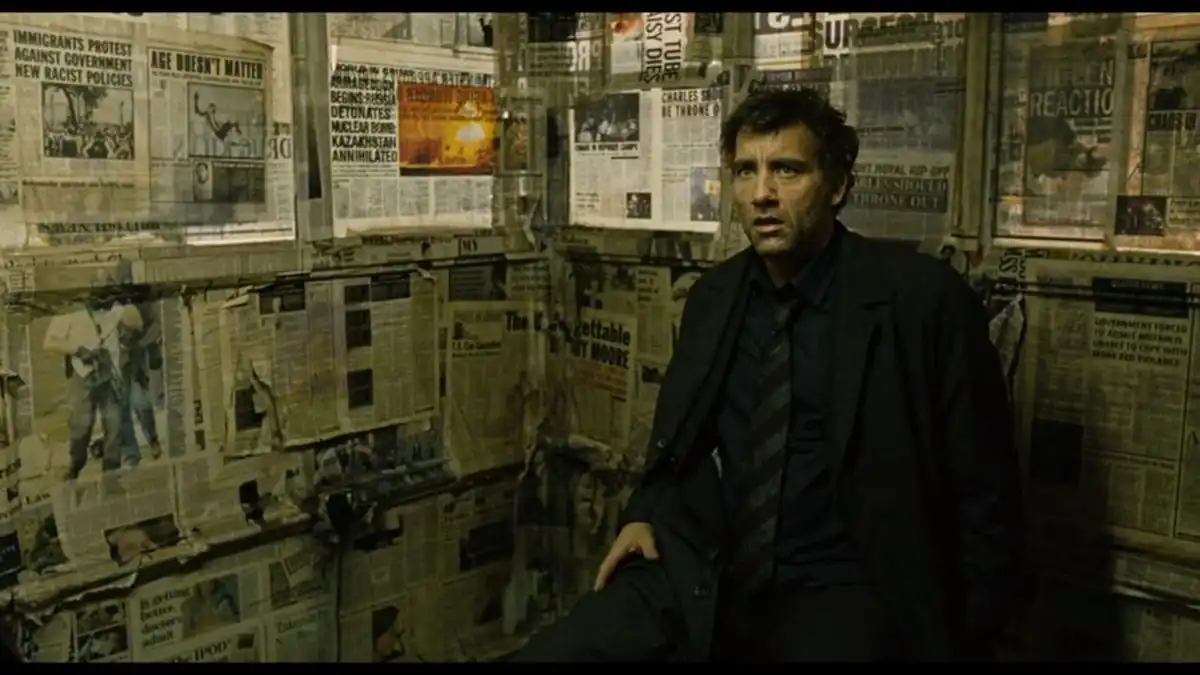
It can be better or worse. In the last seconds of the film, we see practically only the fog. What remains—what? Hope. But will people not lose it? History has proven thousands of times that we cannot learn from either our own or others’ mistakes. How will it be this time? What will happen to Kee on the boat? TOMORROW might be a cruel tomorrow, but it could also mean rebirth. We don’t know that. What is Dylan? An anomaly, a miracle, or a sign that women born shortly before the Omega year will be able to have children? For now, we have only one little girl, about whom we don’t know if she will be able to become the “second Eve.” In Jostein Gaarder’s The Ringmaster’s Daughter, Petter, a character supplying storylines to writers who have lost inspiration, creates a project titled Little Humanity. It is a sketch describing a dying world with a population of 339 individuals. At the end of the concept, he asks the target Author whether it is worth saving humanity. How will the rebuilding of society progress? Or is it better to let it die?
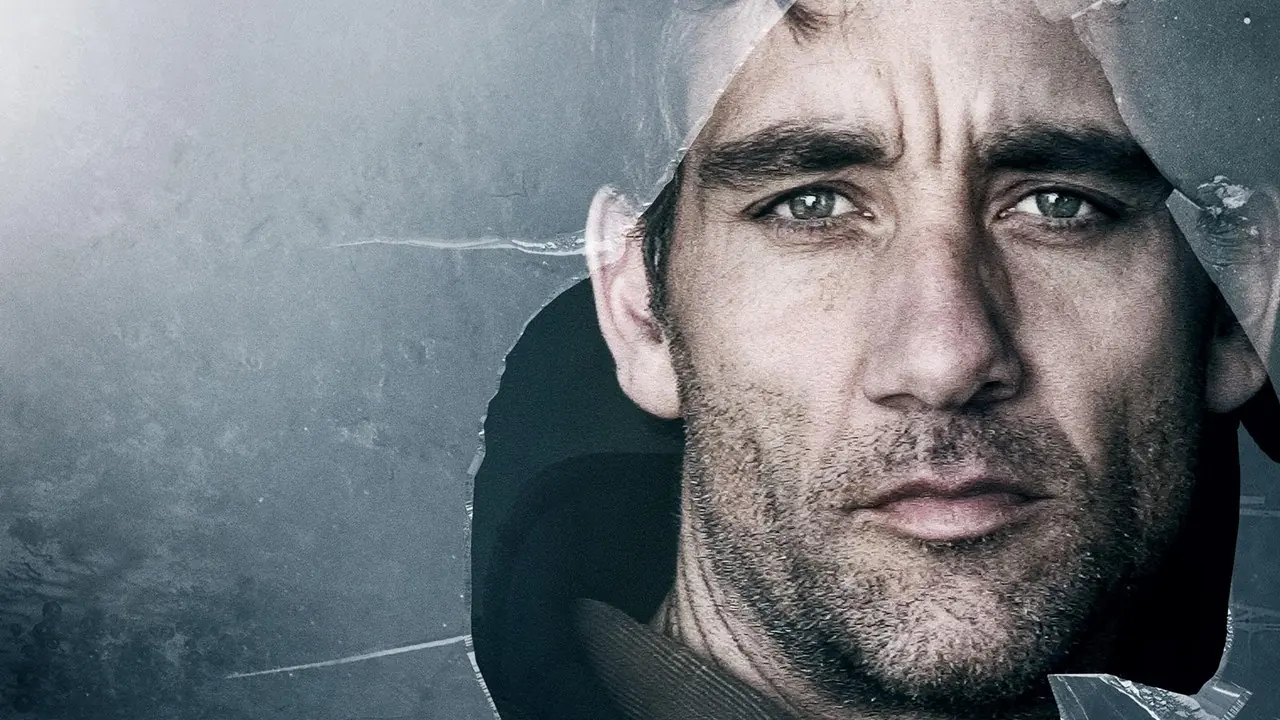
Is the world of Children of Men (our world?) already lost? Has it already signed its own death warrant? Probably yes, but little Dylan does not allow us to forget that it might be otherwise. At this point, the reason for the loss of procreative ability by humans no longer matters; it doesn’t matter whether it’s God or nature, dust or ashes. A small boat rocks on the channel. Here is Hope.
But God remembered Noah and all the wild animals and the livestock that were with him in the ark, and he sent a wind over the earth, and the waters receded.
(Genesis 8:1)
Written by Klara Kukowska

